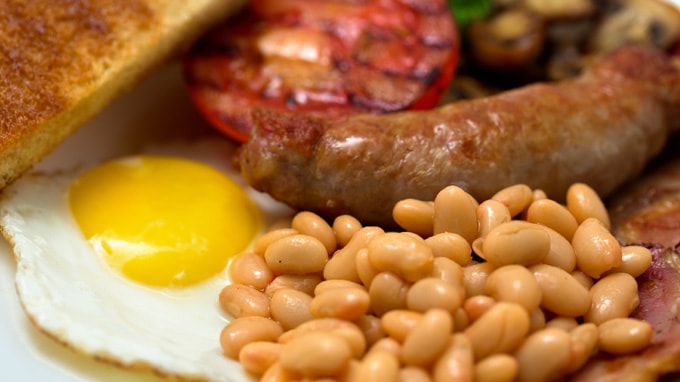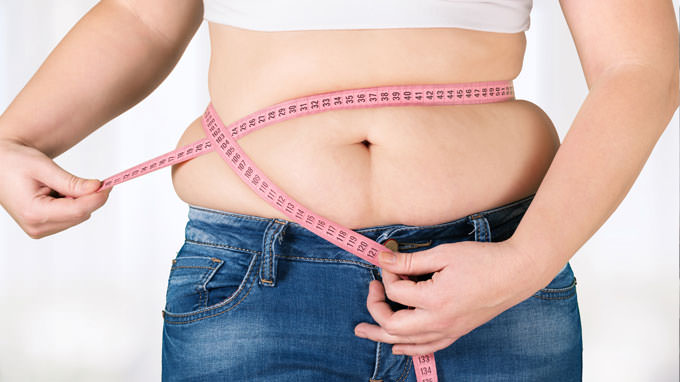Reviewed by QualityHealth’s Medical Advisory Board
What actually happens in your body when you try to lose weight?
At one time, it was believed that weight control was simply a matter of balancing the amount of food you ate with the amount of exercise you got. Upsetting this balance resulted in either weight gain or loss.
You may be interested
“This is still true to a large degree,” says Plano, Texas-based Angela Lemond, RDN, CSP, LD, a registered dietitian and spokesperson for the Academy of Nutrition and Dietetics. “But we now know that what happens when you gain, lose, and maintain weight is much more complicated than a simple ‘calories in, calories out’ formula.” That is, the idea that weight loss depends solely on taking in fewer calories than you consume.
It Starts in Your Head
Did you know that weight control is easier for someone who has never gained weight than it is for someone who has put on extra pounds and is now trying to lose? That’s because when you try to lose weight you’ve gained, your body—or more specifically, your brain—tries to keep you at the higher weight.
When you diet, the control center in your brain slows your metabolism (the process by which the body uses food for energy) down to a lower-than-normal rate for your body size, increases your drive to eat, and even causes changes that make foods seem tastier and therefore harder to resist. Basically, you experience an increase in appetite and a decrease in your ability to burn calories. Why? Your body is trying to prevent weight loss, which it interprets as starvation.
This doesn’t happen to those who stay at a steady weight throughout their lives, and helps explain why some people continue to gain weight: Every time you gain weight, your body finds a new, higher “set point,” or weight your body most easily maintains. You can lose that weight, but as anyone who has ever tried can tell you, sustaining your weight loss is very difficult. In order to maintain a lower weight, you have to overcome your body’s efforts to get you back to the weight at which you started to lose.
Hormones Chime In
Hormones also play a role in weight maintenance. These chemical messengers carry signals from one part of your body to another through your bloodstream. Several hormones are involved in weight control, and one of the most studied is leptin. In a nutshell, when you eat, leptin sends a signal that tells your brain when you’ve had enough.
Normally, when you gain weight, your leptin levels increase, and your desire to eat drops. When you lose weight, your leptin levels drop, and your brain no longer receives the signals that you have enough fat in your body. This triggers the body’s efforts to keep you from starving—namely increasing your appetite and slowing down your metabolism. This regulation helps with weight maintenance.
However, there’s speculation that some obese people may have leptin resistance: They have the higher leptin levels that should signal that they don’t need more food, but their bodies are less responsive to the hormone. This means they continue to eat—and continue to gain.
A Possible Role for Gut Bacteria
Trillions of bacteria live in your intestinal tract, and the overall makeup of this collection of microorganisms, known as the gut microbiome, is unique to each person. In addition to maintaining the health of the digestive tract, the microbiome appears to influence individual metabolism, or the rate at which you burn calories. This in turn affects an individual’s ability to lose weight or maintain a healthy weight. Researchers know that there are differences in the microbiome of lean and obese individuals and these differences seem to affect how efficiently individuals extract energy from foods, and are studying how these differences affect weight regulation in humans. Researchers suspect that altering the bacterial environment in the gut may help curb weight gain.
So, What About Diet, Exercise, and Calories?
Losing weight does require taking in fewer calories (through diet) and/or burning more calories (through physical activity) than needed to maintain your current weight. But the long-established formulas, which use variables such as height, weight, sex, age, and activity level to calculate calorie needs don’t necessarily apply when you try to lose weight.
So what’s going on? Scientists now know that once you lose excess weight, you need fewer calories than you would expect in order to maintain that weight loss. This is because when you lose weight, you also tend to lose muscle mass, which (unlike fat), is metabolically active and burns calories. Weight loss often means you no longer have enough calorie-burning tissue to handle the amount of food you eat.
A Strategy for Fighting Weight Gain
Is there any way to preserve muscle during and after weight loss? Yes: exercise. “Muscle tissue diminishes much faster when it isn’t challenged by exercise,” Lemond explains. She recommends staying as active as possible, regularly engaging in strength-building exercises, and including foods that are high in muscle-building protein at every meal.
Angela Lemond, RDN, CSP, LD reviewed this article.
Sources
Lemond, Angela RDN, CSP, LD. Email to author November 22, 2015.
Arora T and Sharma R. “Fermentation Potential of the Gut Microbiome: Implications for Energy Homeostasis and Weight Management. Nutrition Reviews 2011. 69(2):99-106.
“The Weight of the Nation: The Quest to Understand the Biology of Weight Loss.” (Video) Accessed January 21, 2016.
“Human Gut Microbes.” Nature. (Video) Accessed January 21, 2016.
Gut Microbiota World Watch. “Everything You Always Wanted to Know About the Gut Microbia.” Edited by European Society of Neurogastroenterology & Motility. Page accessed January 21, 2016.











